The Catholic Teacher And The Witness To Truth On A Daily Basis.
Finding the Courage To Teach and Model What Is True
The Catholic teacher and the witness to truth on a daily basis can become a crucial foundation upon which a vibrant Catholic school community can exist. Ever since Pontius Pilate wanted an accurate definition the concept of truth has been a hotly contested topic. How can the modern Catholic teacher help young people navigate the competing truth claims of a complex technological and secular world? In today’s episode I offer some deep reflections on how every Catholic teacher can teach the truth but also model it.
Author
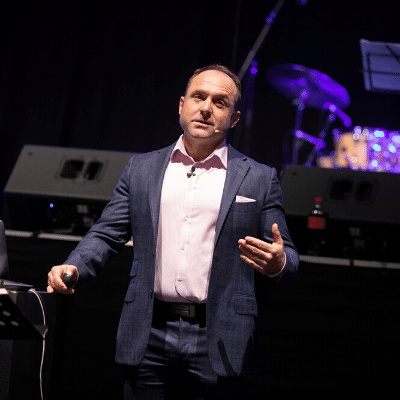
Jonathan Doyle
Jonathan Doyle is an international speaker, author, businessman and executive coach who has spoken around the world to more than 400,000 people on topics related to personal development, peak performance, leadership, Catholic school evangelisation, relationships and much more.
His recent keynote addresses include the NCEA National Convention in St. Louis Missouri to 10,000 delegates and he is a frequent keynote speaker in the US, Asia and Europe.
He is also the founder of an influential education and media business that delivers training content to hundreds of organisations and thousands of individuals around the world on a weekly basis.
Jonathan holds an undergraduate degree in education from the University of Canberra, a Masters Degree in Leadership and Management from the University of Newcastle and has also undertaken post-graduate study in philosophical anthropology.
He is the author of numerous books on relationships and peak performance and each day shares these same ideas with a large global audience via The Daily Podcast with Jonathan Doyle.
Finishing Strong is a loud and clear call for every young person to make the very best of their final years of school. Based on hundreds of seminars around the world to a huge number of students Jonathan Doyle offers powerful, practical advice that can make a major difference.
Each chapter offers inspiring stories, clear principles and actionable steps for identifying and moving forward in study, life, friendships and each key area of life.
Jonathan also includes journal questions and guided reflections at the end of each chapter to maximise learning and ensure the ideas and principles can be made real, personal and achievable.
If you want to help your child or students make the very best of their final years of high school then it;s time to help them finish strong!
10,000 Teachers Have This Book Already!
How can we help teachers avoid burnout, cynicism and exhaustion?
How can the Catholic teacher live their vocation more fully, share the faith with young people and a make a difference in the world?
Over the last two decades, Jonathan Doyle has reached hundreds of thousands of Catholic teachers and leaders around the world with a message of hope and encouragement.
In Tools and Fuels, Jonathan offers a compelling vision of what Catholic schools can be in the 21st century and practical and inspiring strategies about the way each Catholic teacher can play their part in living their vocation, reaching young people and saving the world.
Find out more HERE
The Catholic Teacher And The Witness To Truth On A Daily Basis.
TRANSCRIPT
Well, Hey there everybody. Jonathan Doyle with you once again. Welcome friends to the Catholic Teacher Daily Podcast. Wherever you’re listening in this great big world, welcome aboard. If you’re a new listener, great to have you with us and to all my regular friends. , great to have you with me today. Last night was the coldest night of the year here in Australia where we live it. This morning when I got up to train, it was minus six! Minus six this morning! Many of you know that my main addiction in life is, if it leaks, it’s a decent one is exercise. If I could be so bold as to call it an addiction.
I often say to people, if you’re going to have one it’s not a bad one to have. So up this morning for a pretty solid training ride in minus six. The water in the bottle froze but I am feeling good and it’s great to be in the studio with you to share a few thoughts with you on this wonderful privilege, this beautiful vocation of Catholic Education.
So really, what I want to do in this podcast is nothing more than encouraged you. I want to give you good information but really it’s about helping you stay deeply connected to the beauty of this vocation and the fact that God has called you into it. And if he’s called you into it, he’s going to give you the grace and the capacity and everything you need to do this. I know sometimes you wonder if that’s true, but I want to encourage you.
So today, Let’s begin. I was reading something yesterday in the paper. It was a review of a, sort of a summary from the author of a new book. The authors called Tanveer Ahmed. The book’s called In Defence of Shame, Why We Need Negative Emotions. So, uh, really there’s a lot in that, right. Straightaway in defense of shame.
I mean, marketing have books going to be challenging. Why, as I’ve said, many times, we’re a culture that doesn’t know what to do with negative emotions. A lot of this comes from Freud. The idea that, uh, you know, aspects of guilt and shame are deeply embedded in Freudian thinking. And culturally we’ve come to believe that aspects of shame and guilt are inherently toxic.
And if we experience them, then something’s true, totally wrong. So we’re very positive culture. We try to be a little, I mean, you look at so much social media, particularly, you know, back when I used to be on Instagram. You know, the old thing of, uh, you know, what does it show the best and, you know, show the best and fake the rest.
It’s kind of, you know, we put this idea out there of perfection that we want to speak must be happy all the time. There must be, feel good about ourselves all the time. So what happens when we don’t? So listen to this quote from the book, it’s very interesting. Tanveer Ahmed says:
“When discussing the world of social media, religious leaders have raised the prospect that without the concept of sin, our society lacks the structure to allow for forgiveness. The alternative is ostracism and exile without a route for reunion.”
I think that’s really deep. Anybody, again really quickly. One more time when discussing the world of social media, religious leaders have raised the prospect that without the concept of sin, our society lacks, it’s the structure to allow for forgiveness.
The alternative is ostracism and exile without a root for reunion. Yeah. One of the main reasons I deleted all my social media accounts, it was really tipped by Twitter. I became to believe deeply that Twitter was highly problematic for our culture because, you know, people were the idea of exchanging opinions and rational discussion was gone and people that didn’t hold the right ideas or that.
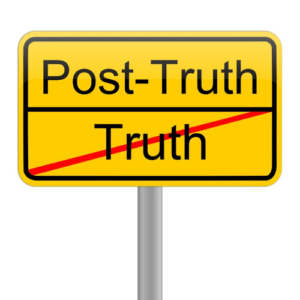 So even within certain groups and tribes, if they didn’t hold kind of to pure doctrine of some form or another, the, the, the response wasn’t, you know, sort of reasoned debate and discussion, it really was what, you know, Tanvir Emmett says here, ostracism and exile. So really what I’m sharing with this with you today is because within our Catholic tradition, you know, this whole concept of sin is actually really important.
So even within certain groups and tribes, if they didn’t hold kind of to pure doctrine of some form or another, the, the, the response wasn’t, you know, sort of reasoned debate and discussion, it really was what, you know, Tanvir Emmett says here, ostracism and exile. So really what I’m sharing with this with you today is because within our Catholic tradition, you know, this whole concept of sin is actually really important.
And as Catholic educators, the ability to carefully intelligently and reasonably help young people understand the concept of sin and the need for redemption. You know, the need for forgiveness is utterly central to our being human. Because if you take that away, then you know, how do we not create a kind of culture of sociopaths?
People are unable to transgress. There’s no sense that I did something wrong. You know, often I’ve reflected on the idea that. I don’t know where I read this many years ago, but when the church begins to abandon the sacraments, they don’t disappear. They just go underground. And I’ve said this on the podcast before, you know, the, the sacrament of penance, the sacrament of confession reconciliation in our Catholic tradition, as it’s been kind of a visceral as you know, I mean, if I could be really bold.
I rarely hear often price driven, bishops encouraging any of us to make it an important part of our spiritual life. So as the church has kind of slowly taken confession and sin, it seems less seriously that hasn’t disappeared. And. Some commentators have made the point that if you look at a lot of our talk show culture over the last 20 years, often you would get people who would go on to shows like Ellen or Oprah to confess their sins and receive public exoneration, public forgiveness.
I think for example, of, uh, you know, Lance Armstrong and I’m a cyclist. I remember when Lance Armstrong finally realized that he couldn’t keep denying the truth ends up on Oprah to talk about, you know, his transgressions and to be good, to receive a kind of public forgiveness. So I think what this quite reminding us of is that helping young people understand sin and forgiveness without crushing them.
Of course, I mean, let’s be sensible about this, but I think that we do something even more dangerous. If we refuse to talk about it at all. I mean, I think this is part of the real courage necessary in Catholic education at the moment, the real courage necessary to lovingly and pastorally, help young people understand the structure of reality.
I mean, that’s an important to have the structure of reality seen as a thing, you know, in the classic translation scene is to miss the Mark. Well, how can we miss the Mark? If there isn’t a Mark to hit and how would we know what that Mark is? Well, it’s the person of Christ and it’s the gospel and it’s the tradition and in the teaching of the church.
So none of us are going to hit that perfectly. So we find ourselves in this need for forgiveness. So all I want to say to you today, if you’re teaching religious studies, If you’re at. And even if you’re not, you’ll find things happening in the school yard. You’ll find people saying things or doing things, and it’s a pastoral opportunity to help young people reflect upon how they can wound each other, how they can say and do things that diminish community, diminish human dignity, and a chance to speak into that.
So look, there’s a lot in there, but I think it’s a really good quote. And I think that we need to pray for the courage. And I know what some of you thinking you go, well, we can’t stand up there and speak about sin. Well, I viewed don’t who will? I mean, we, we, we do it sensibly. We pray for the grace to do it with love and pastoral sensitivity.
The Catholic Teacher And The Witness To Truth On A Daily Basis.
But if we’re not talking about it then hundreds of thousands, millions, of Catholic students leave schools all over the world, you know, each year with very little formation in these core aspects of being human. All right, let’s move on. Uh, if you’re listening yesterday, you would know that I’m doing a bit of a series on a great new book, uh, by Doctor Ryan Topping, it’s called The Case for Catholic Education.
So I’m working through this. I want to share with you some of the key insights from this, uh, Dr. Topping’s, a, a serious Catholic theologian and intellectual and I think he’s got a fair bit to offer us. So when I opened with a quote from his book today, The Case for Catholic Education from chapter one, he says the crisis of Catholic education, which the next generation of students and teachers must overcome is a crisis born chiefly of our lack of confidence in the truth.
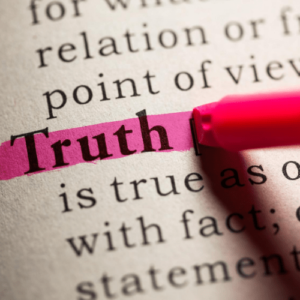 That the crisis of Catholic education. One more time, which the next generation of students and teachers must overcome is a crisis born chiefly of our lack of confidence in the truth. I like everything. I guess we explore here on the podcast. There’s, there’s depth to this. There’s a lot of richness to this, but I think he’s pointing to something important that.
That the crisis of Catholic education. One more time, which the next generation of students and teachers must overcome is a crisis born chiefly of our lack of confidence in the truth. I like everything. I guess we explore here on the podcast. There’s, there’s depth to this. There’s a lot of richness to this, but I think he’s pointing to something important that.
Part of the challenge for Catholic education is that as educators we may have in a highly complex technological world, that’s been rapidly secularized. We may begin to second guess the truth of our faith, the truth of the gospel, the truth of the person of Jesus Christ and what that offers the world. So we become a little bit unsure.
And when we do that, I think that we just. We just doubled down on what we do know is okay, which is what vocational training, which is teaching to tests or teaching content and trying to improve education and trying to prove results. But we begin to doubt our ability to have a much bigger vision of education. And a real confidence in the person that Jesus to sustain us and carry us through this educational project. Now, what I wanted to do is, as I was reflecting on this dear of Catholic educators, having confidence in the truth, mind me have a quiet, which we’re going to obliterate in just a moment.
It’s attributed of course, to Saint Augustine, which is that the truth needs no defending. This quote attribution to Saint Augustine, that the truth is like a lion and you don’t have to defend it, you just let it out and it will defend itself, I’ve recently discovered that, uh, the only problem with that of course is that it’s totally wrong. Saint Augustine actually never said it. How do I know? Because they came across a great book by Trent Horn. I’ll put a link in the show notes here today on the website, the book is called , What The Saints Never Said I really like it. What the saints never said. So reading through that transmitter clear that Augusta literally never said it and a trend horns, actually an apologist.
So he’s also saying, hang on. The truth does need to be defended. It gives a really good example. He said that, you know, sometimes. I know people who go to court and, uh, you know, plead the fifth amendment. You know, they don’t want to incriminate themselves. People like, well, they should speak up. They, if they’ve got nothing to hide, there’s nothing to be afraid of.
They don’t need to defend themselves if they’re telling the truth. And the fact is that a prosecuting attorney can make you look. Completely guilty, even if you’re innocent. So we do need to defend the truth. We actually do. We actually need to be able to give, you know, like, uh, like scripture says, you know, the, uh, we need to give an account of our confidence.
We need to be able to share with these precious young people, the truths that we believe there is of course. Way back in 1996, the brilliant Protestant bar, preacher, Charles Haddon Spurgeon, uh, you know, had this great line where he said, uh, he was preaching and he said, see you that lion, this is talking about the truth of the gospel.
The Catholic Teacher And The Witness To Truth On A Daily Basis.
They have caged him for his preservation, shut him up behind iron bars to secure him from his foes. See how a band of armed men have gathered together to protect. Tech the lion, what a clatter they make with their swords and Spears. These mighty men are intense hint upon defending a lion Oh, fools and slow of heart. Opened that door with the Lord of the jungle fourth free, who will dare to encounter him. What does he want with your guardian care? Let the pure gospel go forth in all it’s lion like majesty and it will soon clear its own way. And ease itself of adversaries. A couple of points. First, I would have loved to have heard Spurgeon preach. I think he would have helped The Catholic Teacher And The Witness To Truth On A Daily Basis.
He’s just a giant, but he’s making a similar point to this. Uh, you know, this quote that was attributed to Augusta, which is that we don’t need to defend the truth that it’ll do it itself. No, in a highly technological secular culture where young people are massively inundated with YouTube, Facebook, Instagram.
TV friendship groups, Tiktaalik Snapchat, whatever. Like we are going to need to explain to them the depths of the faith. Now, this I think is a huge burden for Catholic teachers. None of us, you know, most of us didn’t go through teaching college or university or, you know, planning to sign up for this. But I just had this feeling that I think this is where God has positioned us.
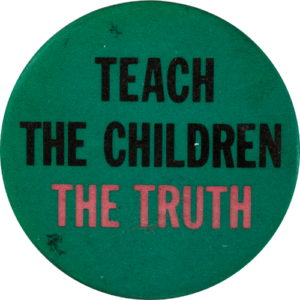 This is where God has positioned us. And this is what he’s asking of us. So I think for me, there’s two parts to this one is that we need to take seriously learning about the faith and, you know, there’s great websites like Catholic answers that can help with that. But we also not just need to communicate the truth of the faith, but this is going to sound pretty intense, but I think we need to reflect and pray on the knee to live the truth that we can’t teach our young people, key aspects of the faith.
This is where God has positioned us. And this is what he’s asking of us. So I think for me, there’s two parts to this one is that we need to take seriously learning about the faith and, you know, there’s great websites like Catholic answers that can help with that. But we also not just need to communicate the truth of the faith, but this is going to sound pretty intense, but I think we need to reflect and pray on the knee to live the truth that we can’t teach our young people, key aspects of the faith.
If we don’t actually believe it and live it now, none of us are gonna do a perfectly, you know, this is need for forgiveness and for sacraments. But we need to be as best we can, people of truth. We need to align our lives, our relationships with the truth of the gospel. I’ll give you an example, you know, you know, riding today, I can’t believe I’m going to tell you this, but, um, you know, there’s car comes right up behind us in the, in their training ride and, and it wasn’t, but then they weren’t particularly friendly and I may or may not have.
I guess communicated strongly to them that I didn’t appreciate they were doing. And as I’m riding, I’m thinking, man, that’s a bad witness. Like, you know, how can I get up and talk on the podcast and stuff? And, well, you know, if I’m doing that well, the answer is because I’m a sinner and because I get it wrong and because I need to do better, I don’t need grace for that and sacraments. I need help as does The Catholic Teacher And The Witness To Truth On A Daily Basis.
So I’m just saying that we don’t have to be perfect. We just have to be aware and we have to be trying with the help of the sacraments and the help of grace to get better. All right. Let’s move on. So there’s a lot there. Huh? You’re getting your money’s worth today. The podcast is free, Jonathan. I don’t know, but I want to give them good stuff.
So, alright. Last thing I want to do is just take you back into Ryan topping’s book here. So in these opening sections, he’s helping us understand kind of where this crisis of Catholic education globally is coming from. So. One of the first things he points to is the philosopher Emmanuel Kant. Now some of you would have heard of Emmanuel Kant, one of the great continental philosophers and, uh, you know, Kant gave us the idea that, well, he sort of reduced our dependence on metaphysics which impacted The Catholic Teacher And The Witness To Truth On A Daily Basis. Now stay with me. I want you to hear this stuff because this will get you thinking as a Catholic teacher about the classrooms that you walk into. So I’ll go back a little bit before care. If you look at, um, you know, the, the famous, I think, therefore I am Cogito ergo sum, you know, the idea that, um, The reality is grounded in our perception of it all that the mind is the center of reality and we construct it.
So many of you would have heard of that famous line. I think therefore I am before that cosmology, at least in the, in the Western world was, was bigger than that. It was expansive. People had a huge sense of the order of the Cod cosmos and God present in that, which leads us into metaphysics, which is kind of technically what’s referred to as.
Abstract general reasoning, but metaphysics would include things like truth, beauty, goodness, ultimate purpose of life. So can’t basically said, look, we can’t know these things. He ended up with this idea called de ontology, which was the science of duty. He’d say, look, we really can’t figure out any of these grades, truths of reality about truth, beauty and goodness, and yeah And how we should live. And also The Catholic Teacher And The Witness To Truth On A Daily Basis. But what’s important is that we do our duty. We should all live it way. Cause that’ll stop us killing each other and it’ll keep our societies relatively straightforward. Look, this just led to this vast idea. That, um, we can’t know the truth of reality that we can’t, you know, get a sense of our own nature or experienced something outside ourselves that can inform how we live now.
Topping points to a great speech by Benedict to Pope Benedict 16, who referred to living this way as being likened to living in a concrete bunker with no windows. So by Benedict said, once you remove. Truth, beauty. Goodness. The cosmos, the universe, spirituality, the presence of Christ you end up, or the human person ends up in this sort of highly structured concrete bunker with no windows out into reality.
I’ll read you a quick quote here from topic and then we’ll finish up. Okay. Uh, Dr. Topping says:
“…it suffocates because it crushes the moral imagination. It stifles because it arbitrarily narrows the range within which the modern person is willing to think about thinking. Thus, instead of openness to wonder, openness to beauty, to truth, goodness, angels, unity, the music of the spheres, the soul and the like, the scope of reason is reduced to aims dictated largely by the economy and the impact of narratives of technological innovation, to computer chips and airplanes.
So I’ll put a reference to his book HERE, the case for Catholic educational and should get a copy and just make it part of your prayer. Just read through a couple of paragraphs each day, but what’s he saying there. He’s going that once we lose that divine perspective, once we lose this capacity for truth, beauty and goodness, and the expansiveness of the reality of how God has created us, we shrink into this technological structuralist kind of culture.
How does that relate to you as a Catholic teacher? Because isn’t it true that so much of our education has just become, I guess what topping says, binal. It’s about literally hyper specialization and getting students the best possible marks so they can get in the best possible college. It’s what I call a factory model of education.
So what we need to start thinking about is, am I saying this stuff’s not important? No. We want to be able to help young people. Have the school, the, the tools and the skills they need to operate effectively in the world and to be able to provide for themselves and feud in their future families and to bring productivity growth to the world and all sorts of good stuff. This can help with The Catholic Teacher And The Witness To Truth On A Daily Basis.
I mean, productivity growth’s really important. It drives a lot of stability in cultures over time. So these things aren’t bad. They become a problem when we reduce the fullness of the human person down to these elements. So my prayer for you is that you’ll begin to reflect in your heart, upon the beauty, the expansiveness of what Catholic education can begin to help young people understand about reality.
About a much bigger picture. So a school should be these dynamic, joyful places where we say, Hey, we want you to get a good job. We want you to be employable, but we want you to be so much more than that. We want you to be. I want you to understand what happiness really, really means, what virtue means, what, what healthy, beautiful relationships can be.
We want you to understand the power of the sacrament, send the fact that God loves you. I mean, I was done at a retreat in an eight day Ignation retreat recently, and the meditation I did on the annunciation. So it was really helpful for me cause I was doing this meditation. I suddenly went, you know what?
God went to a lot of trouble. God went to a lot of trouble. It was amazing that God sort of basically did this. So friends let’s begin to share that much bigger vision with young people. All right, let’s finish up. I’m done friends, but everything’s on the website. One Catholic teacher.com. Please make sure you’ve subscribed.
Check out the resource pages there. Please share this message with other Catholic teachers. We’ll go deeper tomorrow. Thanks for your patience. It’s been a rich episode today, but we’re going to talk again tomorrow. My name is Jonathan Doyle. This has been the Catholic teacher daily podcast. God bless you for your yes to this vocation and God is not finished with you yet.
The best is ahead. He’s not behind. And I’ll speak with you again tomorrow.
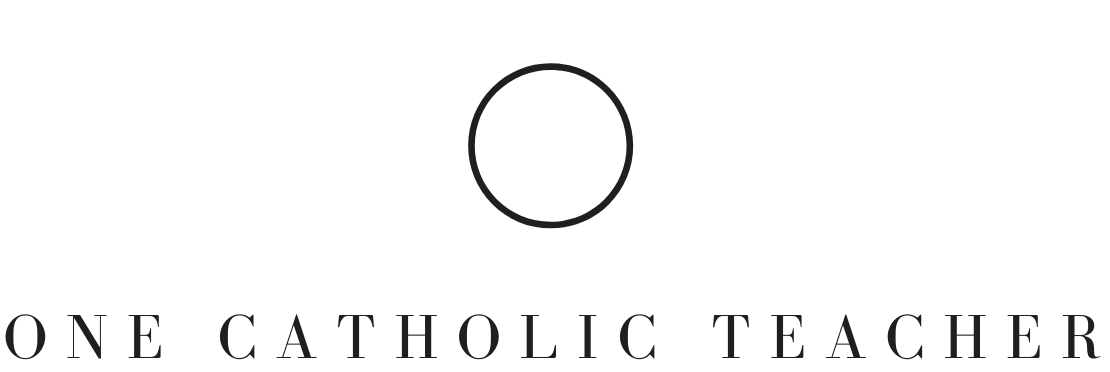
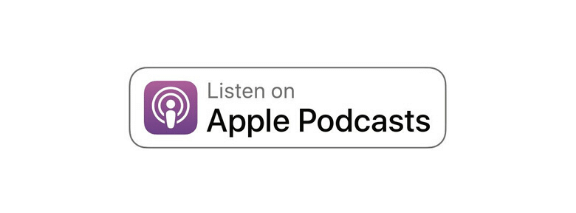


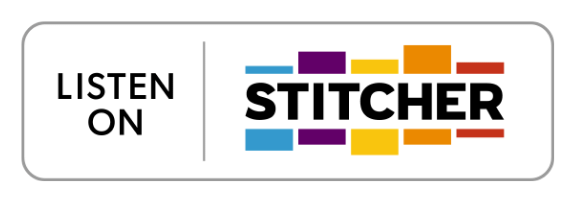
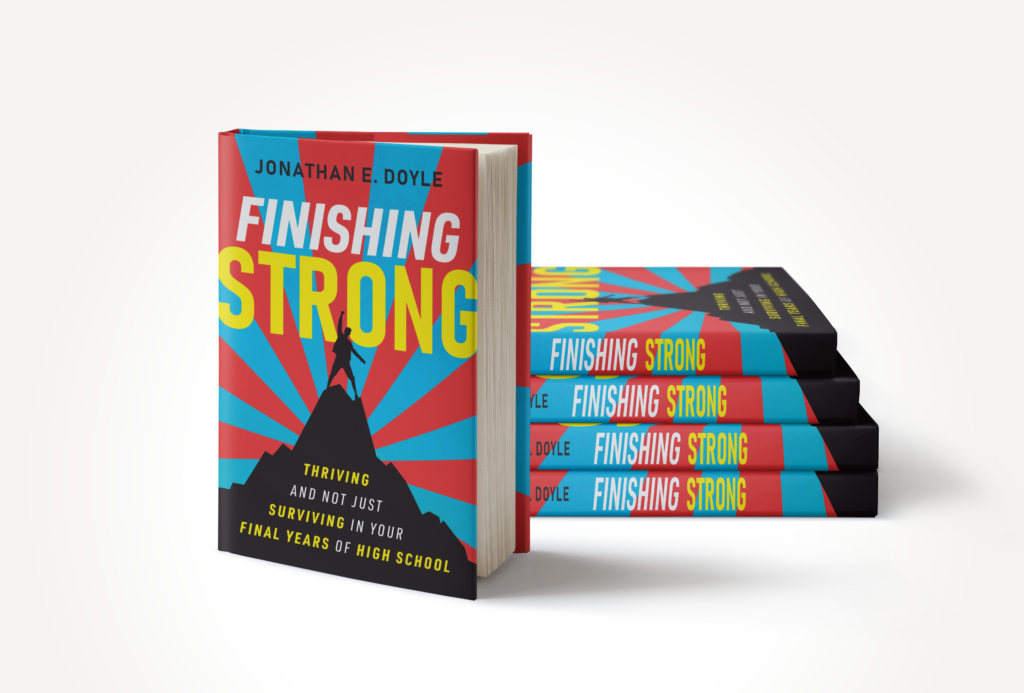





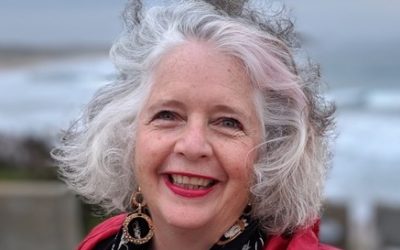




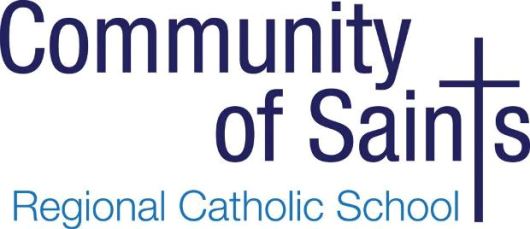

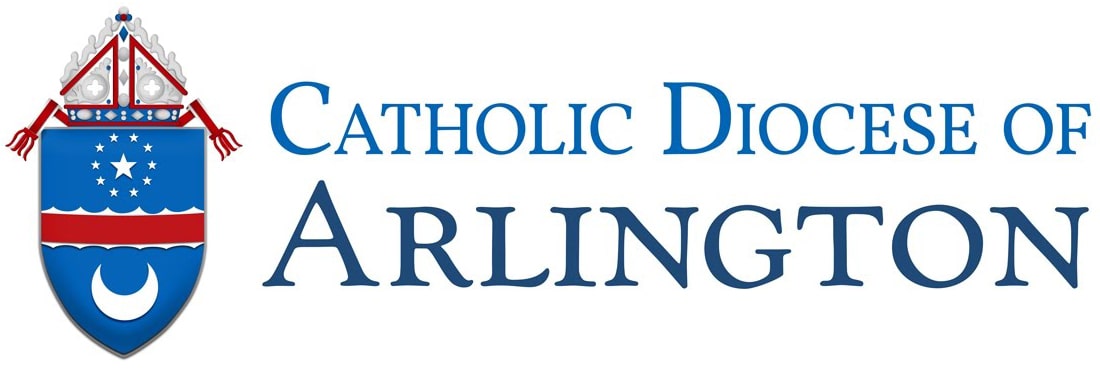
0 Comments